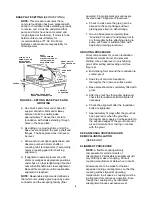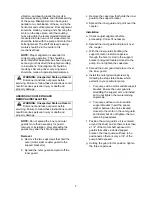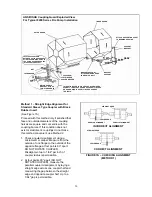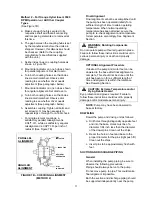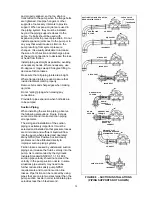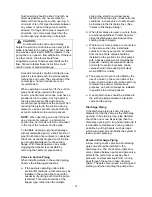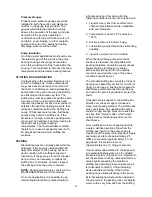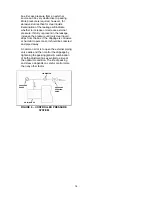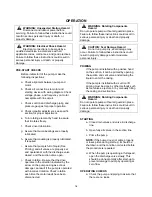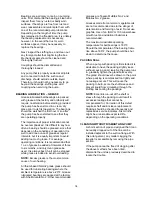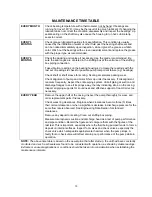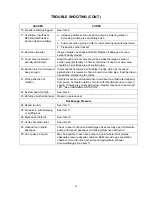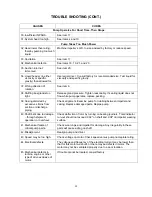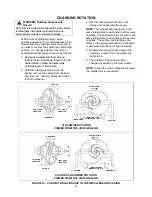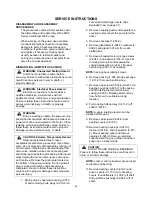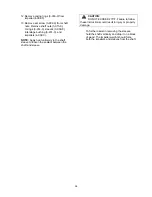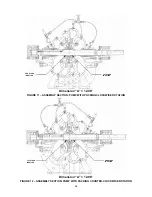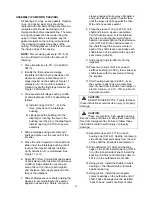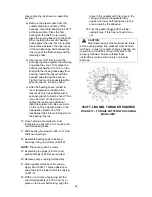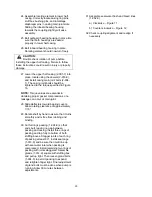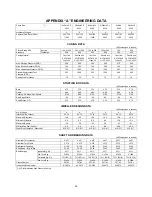
22
TROUBLE SHOOTING (CONT.)
CAUSES CURES
Pump Operates For Short Time, Then Stops
30. Insufficient NPSHA.
See item 17.
31. System head too high.
See items 4 and 10.
Pump Takes Too Much Power
32. Head lower than rating;
thereby pumping too much
liquid.
Machine impeller’s O.D. to size advised by factory or reduce speed.
33. Cavitation
See item 17.
34. Mechanical defects.
See items 18, 19, 21, and 23.
35. Suction inlet not
immersed.
See item 20.
36. Liquid heavier (in either
viscosity or specific
gravity) than allowed for.
Use larger driver. Consult factory for recommended size. Test liquid for
viscosity and specific gravity.
37. Wrong direction of
rotation.
See item 6.
38. Stuffing box glands too
tight.
Release gland pressure. Tighten reasonably. If sealing liquid does not
flow while pump operates, replace packing.
39. Casing distorted by
excessive strains from
suction or discharge
piping.
Check alignment. Examine pump for rubbing between impeller and
casing. Replace damaged parts. Repipe pump.
40. Shaft bent due to damage
– through shipment,
operation, or overhaul.
Check deflection of rotor by turning on bearing journals. Total indicator
run-out should not exceed .002" on shaft and .004" on impeller wearing
surface.
41. Mechanical failure of
critical pump parts.
Check wear rings and impeller for damage. Any irregularity in these
parts will cause a drag on shaft.
42. Misalignment.
Realign pump and driver.
43. Speed may be too high.
Check voltage on motor. Check speed versus pump nameplate rating.
44. Electrical defects.
The voltage and frequency of the electrical current may be lower than
that for this motor was built, or there may be defects in motor. The
motor may not be ventilated properly due to a poor location.
45. Mechanical defects in
turbine, engine or other
type of drive exclusive of
motor.
If trouble cannot be located, consult factory.

